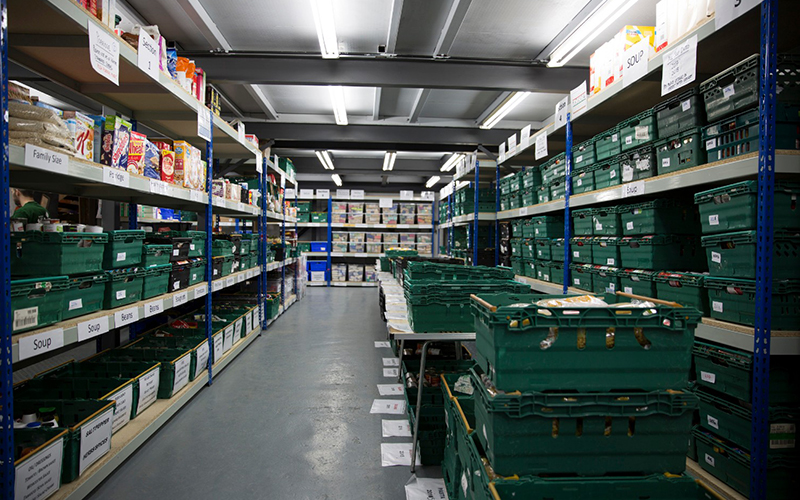The need for food banks, hygiene banks and baby banks shows no signs of levelling off despite the UK coming out of lockdown, experts have warned.
The Trussell Trust, a network of UK food banks and UK-wide The Hygiene Bank saw unprecedented demand for their services throughout the pandemic.
Despite the UK reopening up, both charities say they see no signs of this need dropping.
Meanwhile the Greater Manchester baby bank, Visit from the Stork CIC, believe their referrals of 40-50 families a week needing baby essentials is set to remain constant for at least the next few months.
Rory Weal, from the Trussell Trust, said: “That £20 for many families has been the difference between able to afford food and not being able to afford food.
“From the polling work we’ve done, our users are saying if this cut goes ahead they are going to have to make some impossible decisions like whether they can feed their children or not, whether they are going to have to cut back on essentials like clothing or toiletries.
“So it’s already a real worry for families right here and now before the cut has gone ahead.”
The provisions supplied by food banks, hygiene banks and baby banks help people who would otherwise have to choose between essentials such as heating and electric, food or toiletries.

Baby bank, Visit from the Stork CIC, provides baby essentials such as nappies, wipes & shampoo to families who are struggling to afford them.
CEO Kimberly Bond said: “It’s heart-breaking, because as a parent you want to provide everything you can for your children.
“When it’s the difference of ‘I can’t buy nappies for a week but I would be able to buy food if someone gave me the nappies’ then obviously we want to solve that issue or help in that way.
“Baby toiletries are really important because babies can’t fend for themselves, they need the essentials, baby wash, lotion, oils, the gentle shampoo.
“If parents can’t provide those then babies go without.
“By us delivering the baby essentials – it really helps the families by reducing their stress.”
While the general public support food banks well by donating food, there is less awareness about the need for hygiene products and baby essentials and not all food banks are able to provide this.
Amy Harris said: “It’s easy to think about food -if you don’t have food you die, it’s easy to get your head around.
“Whereas with hygiene poverty, I think you just don’t think about it until someone talks to you about it. If you don’t have the money to buy food, then any limited means you do have is going to go on food and sustaining yourself rather than deodorant.
“Yes it may only be 60p from ALDI but if you don’t have 60p you can’t afford it.
“It doesn’t matter how little it costs, if you don’t have that money or that means then you can’t afford it.”
Reasons for needing support from one of these banks is long and varied, but according to the Trussell Trust’s Rory Weal, can be boiled down to people not being paid enough through the social security system.
This sentiment has been echoed by both The Hygiene Bank and Visit from the Stork CIC.
Some people have taken out payday loans to top up the 20% of missing wages on furlough, only to fall behind on repayments and in to debt.
Others went on Universal Credit for the first time and had to wait 5 weeks for their first payment, with little money to get by in the meantime.
Perhaps most disturbingly of all, many who lost their jobs have ‘no recourse to public funds’ as part of their visa, meaning they were not entitled to any benefits.
These reasons are driving factors for people relying on food banks, hygiene banks and baby banks the charities have stressed.
As many struggle to recover from their financial hardship, The Trussell Trust, The Hygiene Bank and Visit from the Stork CIC have all stated they will continue to support those in difficulty.
Kimberly Bond added: “Without us and food banks and hygiene banks I don’t know what people would be doing.
“It’s so sad we have to be here but we’re part of the society now, and we’re not going to go away because the poverty in Greater Manchester is not going to go away anytime soon.”
Feature image: courtesy of The Trussell Trust



